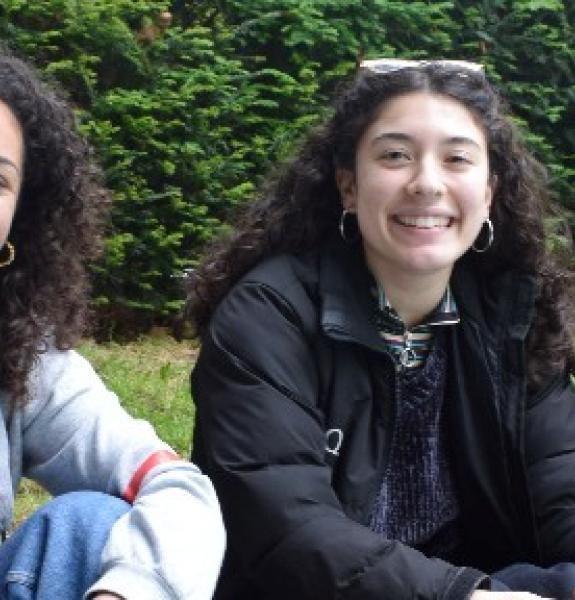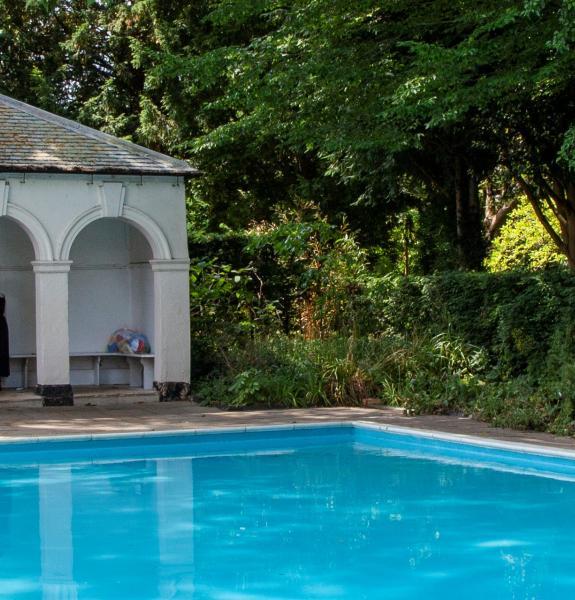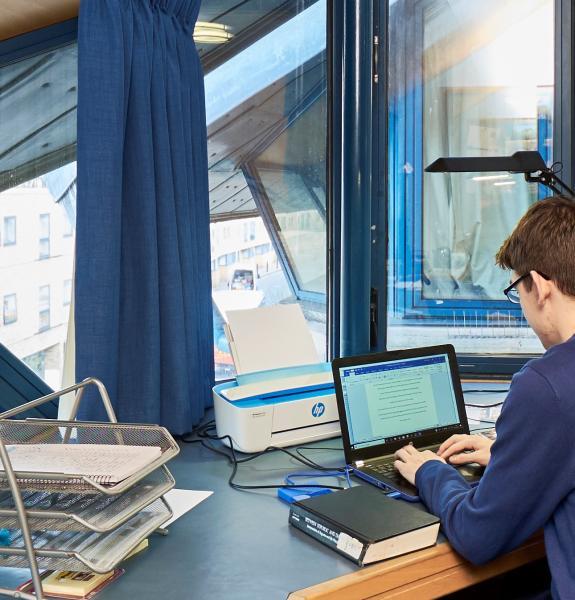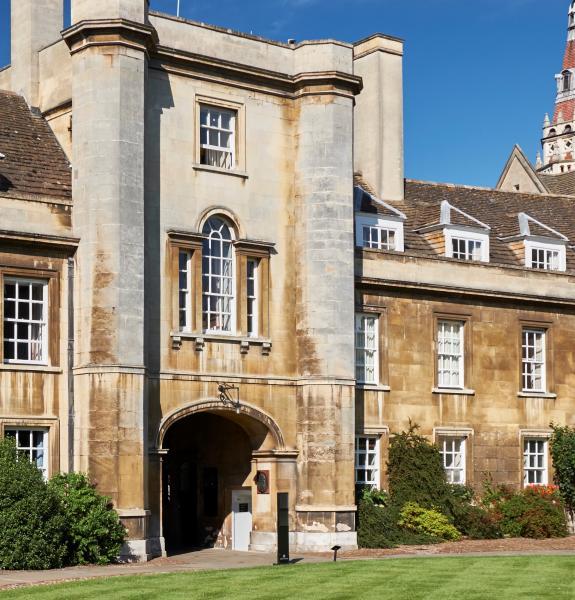"In Bulgaria we don't study Integration or Matrices."
 We welcome applicants from Bulgaria who would like to apply for a place here at Christ's College. We also welcome teachers and guidance counselors at schools in Bulgaria to get in touch if you have questions about supporting students from your school who would like to apply to Christ's College.
We welcome applicants from Bulgaria who would like to apply for a place here at Christ's College. We also welcome teachers and guidance counselors at schools in Bulgaria to get in touch if you have questions about supporting students from your school who would like to apply to Christ's College.
- Entry requirements
- Choosing subjects within your Diploma
- Maths advice
- Academic competitions
- English Language requirements
- Student profile
- The application process
- Which subjects and grades to include in your UCAS application
- Further details on aspects of the application process
- Finance
- Where can I find out more?
| News |
|---|
Do join us for regular webinars, online open days and the next Christ's International Webinar. A complete list of forthcoming events is here - quite a few of them are online! If you are applying for one of the following courses, please be aware that you will need to register for an Admissions Test by mid-September: Chemical Engineering & Biotechnology, Computer Science, Economics, Engineering, Law, Medicine, Natural Sciences. We advise you to register as early as you can to increase your chances of getting your chosen Test Centre. Further info below. |
Entry requirements
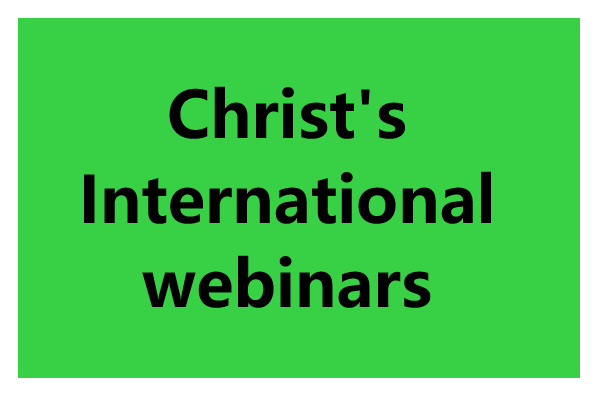
Typical offers for Christ's applicants taking the Diploma za Zavarsheno Sredno Obrazovanie require an overall score of 5.8, and 6.0 in two Matura (state-examined) subjects relevant to your chosen course. We recommend that prospective applicants take a third relevant subject to the highest level possible within their school. Some Bulgarian applicants have historically received higher offers. This is more likely to occur in subjects in which competition for places is particularly fierce, such as Architecture, Law and most Science subjects: a "stiff" offer might specify an overall score of 5.85 or 5.9, with 6.0 in up to four state-examined and school-assessed subjects.
Students taking the International Baccalaureate would normally need to achieve 42 points overall (including bonus points), with 7,7,6 in Higher Level subjects. If you are applying for a course that requires Maths at Higher Level in the IB, make sure that you take the Maths: Analysis and Approaches option at Higher Level. See our page for IB students.
Students taking International A levels will need to achieve at least A*AA or A*A*A, depending on the course applied for. See our page for International A levels.
Some courses require a test. The dates and registration details for these tests vary from subject to subject so please check this carefully in relation to the course you are planning to apply for.
Offers for Mathematics include STEP II and III. Further information about STEP and preparation support is available on the Maths page.
Choosing subjects within your Diploma
You will need to ensure that the subjects you are taking / have taken meet any subject entry requirements for your chosen course. These are set out on the subject pages (and do also consult the relevant subject information on the university website).
- Generally speaking, we recommend that prospective students sit state examinations in the two subjects that are most relevant for the course you wish to study at Cambridge.
- If the University or College requirements specify a third relevant or "desirable" subject, this should ideally be included in your school-assessed subjects.
- A prospective Biological Natural Scientist, for example, could take Mathematics and Chemistry as state-examined subjects (alongside Bulgarian Language and Literature), and Biology as a "major" or "advanced" school-assessed subjects.
- If you are applying for Computer Science, it would be sensible to take Mathematics and Physics as state-examined subjects, and to study as much additional Mathematics as you can within our school, as well as (perhaps) Chemistry.
- Where the entry requirements for a specific Cambridge course include particular A-level subjects, you will need to show that you have knowledge equivalent to the relevant A-level. You and your referee can assist assessors by providing details of the topics taught at your school, within each relevant subject, especially if your school curriculum is significantly more advanced than the curriculum covered by state examinations.
- If you cannot offer more than one state-examined subject, other than Bulgarian Language and Literature, you should ensure that you study the second most relevant subject in as much depth as possible, at school.
- It is also helpful to list any major academic achievements outside the classroom.
- Subjects such as Physical Education are unlikely to to play a role in the admissions decision, unless they pull your overall average below 5.8.
Mathematics advice for courses that require or recommend Further Mathematics
Any course that requires A-level Further Mathematics is likely to expect applicants to have advanced knowledge of mathematics that differs in places from the mathematics that you cover in the Bulgarian system. If you are applying for one of these courses, you should ensure that you familiarise yourself with a Further Mathematics syllabus (example) and mention the fact that you are “topping up” your mathematics, in your personal statement. Some online resources are available to non UK students via the Advanced Maths Support Programme, and Mark Warner and Anson Cheung's book, A Cavendish Quantum Mechanics Primer is especially helpful for those considering Engineering and Physical Natural Sciences, and further resources are available on the relevant subject pages.
If you're planning an application for Mathematics at Cambridge, the Advanced Maths Support Programme website contains a range of resources, including problem sheets, test materials and links to other sites. Getting involved with Mathematics competitions and programmes is a great way to stretch your wings mathematically, and many successful applicants to Cambridge participate in regional Mathematics Olympiads or even the International Mathematics Olympiad. If your maths is very strong, you might also wish to practice past papers for STEP, the advanced examination used by Cambridge, Warwick and a few other universities to test mathematical aptitude. Christ's offers for Mathematics usually include STEP 2 and STEP 3, and Cambridge University provides a free online STEP Support Programme.
Academic Competitions
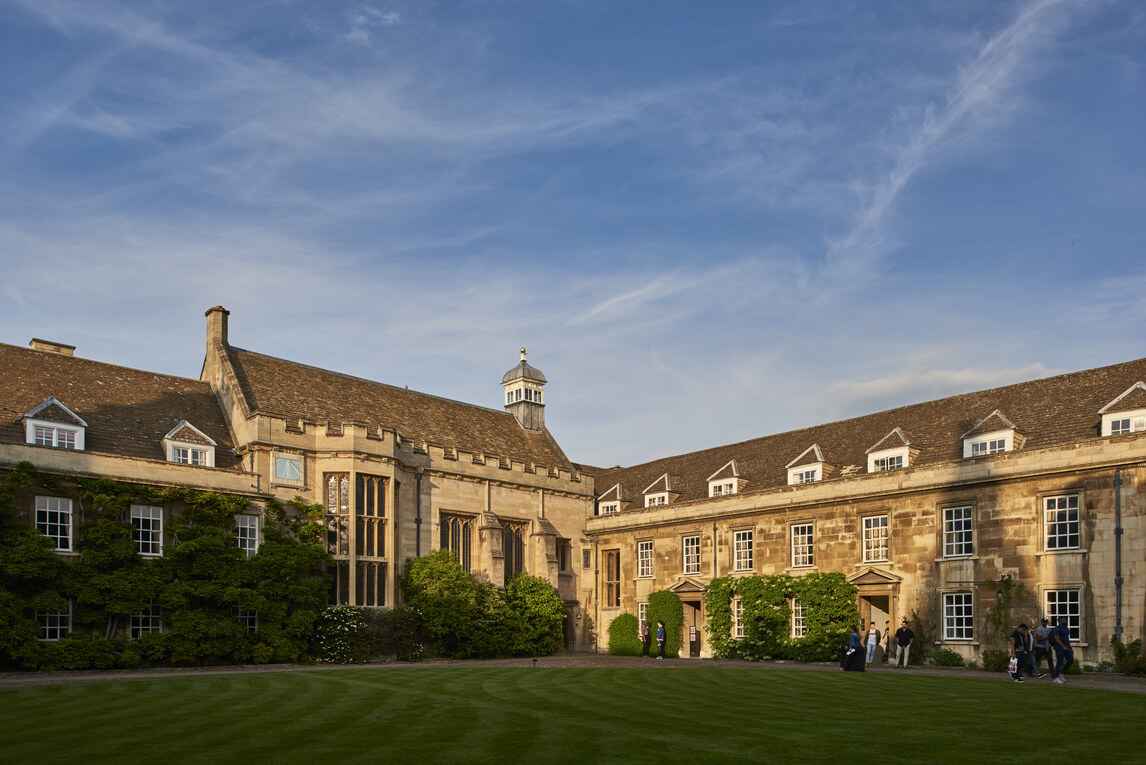
Many successful applicants have participated in Maths and Science competitions (including international Maths and Science Olympiads), and doing well in such competitions can be a good way to demonstrate that your mathematical and/or scientific knowledge and skills are at the required standard, particularly if you have not taken A levels. Taking part in any form of competitive academic activity will also emphasise your commitment to the subject involved.
Here at Christ's College, students from Eastern Europe and the Baltic States who have won individual medals at selected International Science Olympiads and perform strongly in our interviews and assessments will be considered for adjusted offers, that is, offers set at a lower level than would be the case for non-medalists.
If you are applying for an essay subject such as History, English, Philosophy or Classics, a number of Cambridge Colleges hold essay competitions which you might find helpful and enjoyable. See, for example the Peterhouse essay prizes in History, English and Science and the Trinity Essay prizes, which also include Linguistics, Philosophy, Politics and Law. There is no obligation to take part in these, but they can offer good opportunities to explore a relevant topic and write in English, and if you do well, this will be an achievement that you can tell us about in your application.
English Language requirements
If English is not your first language, we will look at your grades for English at school and also assess your language skills during the various elements of the Cambridge application process. We may include an English requirement in an offer if a candidate's English seems variable at interview, or in an at-interview admissions assessment. This is more common in essay-based subjects.
If you are given an English Language condition, the standard requirements are on the university website, and you would have about seven months to meet the condition after your offer is made in January.
NB. Some UK universities do routinely include TOEFL, IELTS and comparable qualifications in offers to Bulgarian students, so if you already hold such a qualification, you should mention it in your UCAS application.
Student Profile
Christ's students from Bulgaria include Simeon from Yambol, who has kindly shared his experiences of studying and living at Christ's College in his profile below. We hope that you will enjoy reading it!
You will also meet Kiril, our Bar Manager, who grew up in Sofia - see Five things you might not know about Kiril Vitanov!
"If you are unsure whether to apply to Cambridge, do it - it's actually not as terrifying as it looks (it's not terrifying at all!)"
The application process

We recommend that you apply as soon as possible once UCAS opens for applications in September. Your course may require registration for an admissions test in September (depending on the subject) and then the UCAS application deadline for all courses is 15 October 2025. Application is for entry the following October (or for deferred entry the year after). We encourage all applicants to read the information about applying on the relevant subject page, as well as the how to apply page well in advance of September, as there are a number of parts to the application procedure which may take time to organise and complete:
- If you have a test that requires registration (needed for some of the courses), you will need to make sure you are registered for this by the relevant deadline. Details are updated on the Written tests page by July each year for students applying the following October. You will be able to search for the test centres in Bulgaria.
- There is more than one application form. You first make a UCAS application and then you complete an additional form called My Cambridge Application.
- You will need a referee who can provide a reference and predicted grades for any exams that you have not yet taken.
- You will also need to arrange for your school to provide a transcript, which you upload as part of My Cambridge Application.
Do also explore our additional support pages for international applicants, and note that on 20 September Christ's publishes the current applicants section, which will support you (in detail!) through the next steps once you have submitted a valid application and chosen Christ's College in your UCAS application.
Which subjects and grades should be included in your UCAS application?
If you have already completed the Diploma za Zavarsheno Sredno Obrazovanie when you apply, please include your overall average, your score in state examinations, and your score in all subjects studied in grades 11 and 12.
If you have not yet completed the Diploma, you should include your average to date, and your score in all subjects studied in grade 11.
You will also need to submit your actual transcripts.
Admissions Tutors do not have access to detailed information about Bulgarian schools, so you and your referee can assist them by providing some educational "context", such as the typical overall grade at your school and any academic criteria for entry. It is also important for your referee to indicate where you rank within your school cohort.
If you come from a school context associated with weaker academic outcomes, or low levels of progression to university, you should ensure that you or your referee mention this fact in your UCAS form. If your performance in education has been affected by other factors (such as dyslexia, ill health, familial or personal disruption), then it may be appropriate to ask a teacher or doctor to submit an Extenuating Circumstances Form or additional letter on your behalf.
"Both socially and academically, there is not a thing that has disappointed me here, and I have received all the support I asked for."
Further detail on aspects of the application process
We have additional help pages for international students for aspects of the application process such as UCAS personal statements, UCAS references, Admissions Assessments and interviews. See the additional application support for international applicants.
Do read these details carefully, as it's important to understand what you will be assessed on and what we are looking for. Bulgarian students tend to perform solidly at interview, simply because you are used to oral assessment, which is not in fact as common in the UK system. It is worth bearing in mind, however, that a Cambridge interview is not a straightforward academic “examination” of what you know: it is a way of finding out how you handle and apply new information, and whether you would thrive within the supervision (tutorial) system. See the interviews page for the detail. The Cambridge University Bulgarian Society, Canta Bulgarian, is happy to mentor Bulgarian applicants invited to interview in Cambridge, and details of their Mentoring Programme are available on their website.
Finance
Do have a look at our finance section for details of the costs and financial support available. In addition to the university-wide awards from the Cambridge, Commonwealth, European and International Trusts, you'll see that at Christ's we have Christ’s College International Awards and Christ's Awards.
The Christ's College International Awards awards are worth £10,000 a year and may be accompanied by a full or partial waiver of the College Fee (currently £11,900 a year).
More information is available on our page on international financial support and do also read the notes for EU students.
Where can I find out more?
We encourage you to explore the college online as there are lots of pictures to help you to get a sense of it. We have a College map and there are picture pages for First Court, Second Court, Third Court, New Court and the Fellows' Garden, as well as a section on Christ's facilities including pages on the Hall, Canteen, Working Library, Old Library, Law Library, Chapel, Theatre, Common Rooms, Café and Bar, Swimming Pool, Gym, Squash Court, Function Room, Sports Fields and Boathouse. There's a page on accommodation, and 360 degree photography of First Court, The Fellows' Garden, and Third Court.
Do explore the undergraduate admissions section, and the international students section plus the relevant subject page in particular. If you read through some of the student profiles and the student life section, you'll also pick up lots of detail about College life.
For your course research we recommend reading the Christ's subject page (and following links from it to the university pages too). It is essential to read this page before making your application as it also has any subject-specific requirements, advice and resources.
We hope that you will feel free to email the Christ's Admissions Office: admissions@christs.cam.ac.uk with any questions. We'll be pleased to hear from you!
If you would like to visit Cambridge, you are welcome to Visit Christ's (and there are a number of options for this on the page). We also have events (including online events) through the year, so don't worry if you can't travel. We recommend reading this website, and it would be particularly helpful to sign up for one of our international webinars.
International Students / Should I apply? / How to apply / Subjects at Christ's / Application support for International Students


